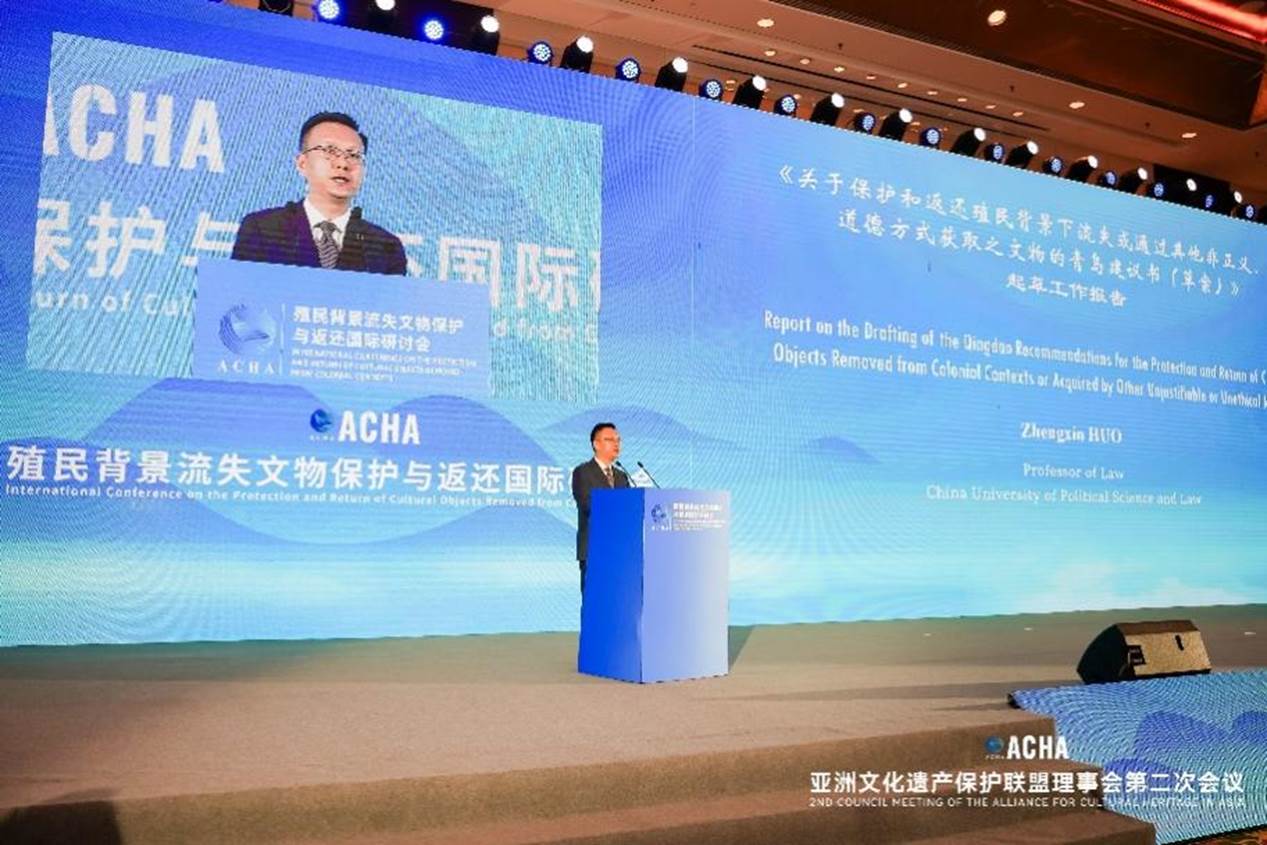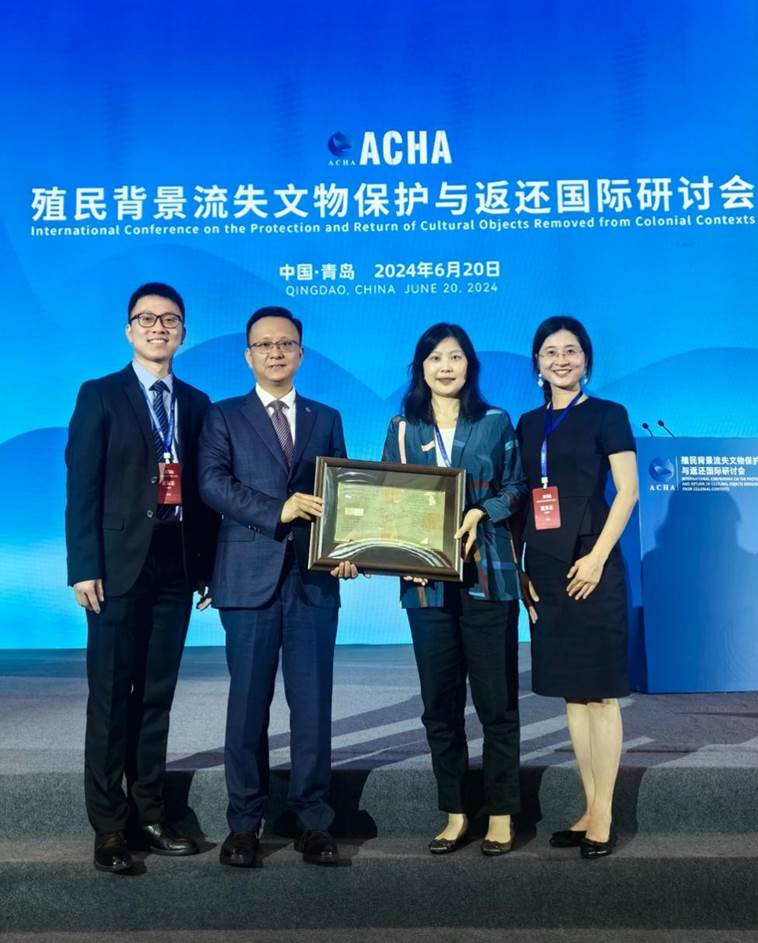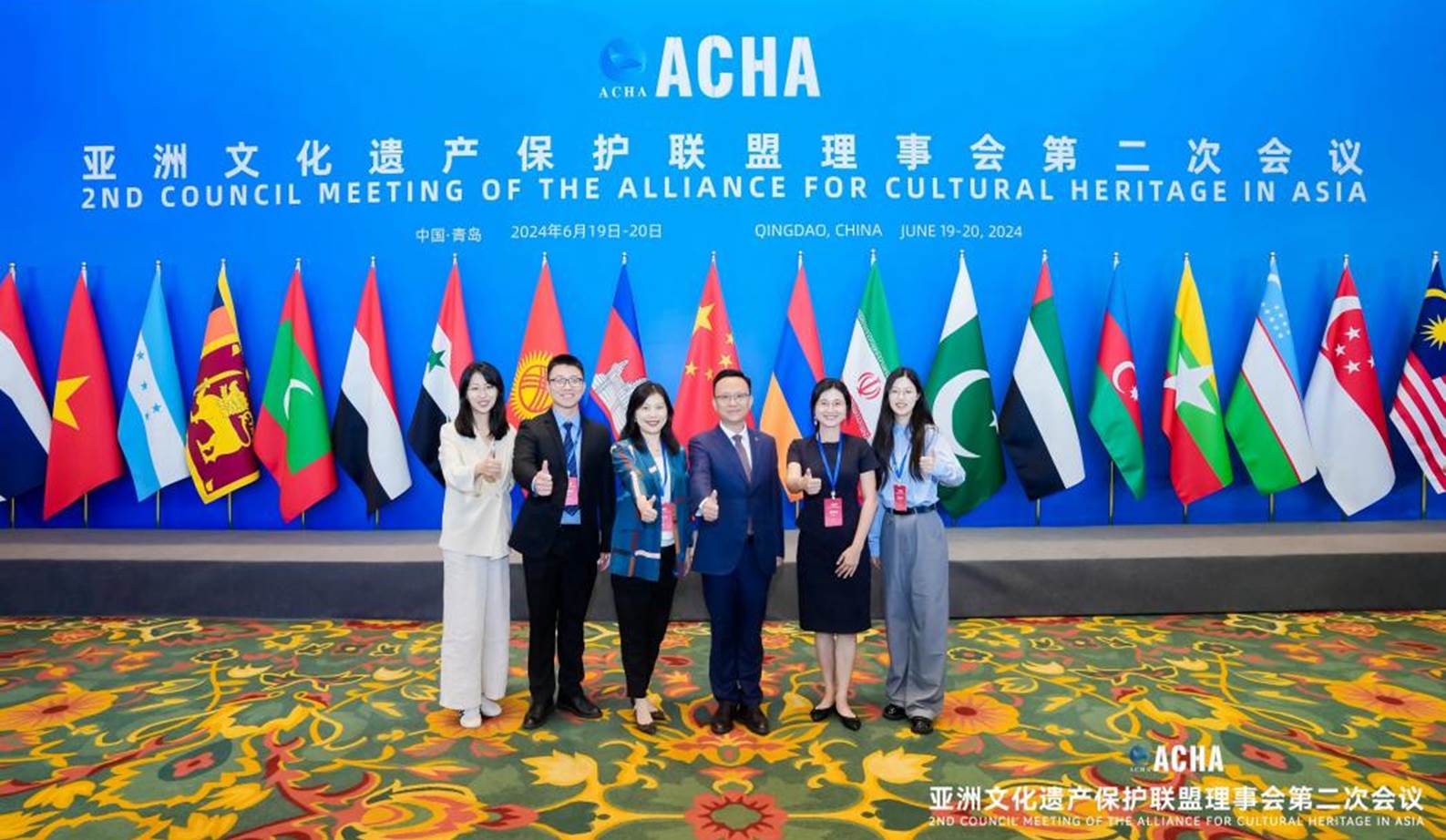The second meeting of the Asian Cultural Heritage Protection Alliance (ACHA) Council and the International Symposium on the Protection and Return of Cultural Relics with Colonial Backgrounds was successfully convened in Qingdao, Shandong, from June 19 to 20, marking a significant step forward in global cooperation for the preservation of cultural heritage. The event was organized to foster intergovernmental collaboration and dialogue on the recovery of cultural relics, to tackle the complex challenges associated with the return of items lost during colonial times, and to seek innovative solutions for their protection and repatriation.

On June 20, the symposium released the Qingdao Proposal on the Protection and Return of Cultural Relics Lost Due to Colonialism or Acquired through Other Unjust and Immoral Means (hereinafter referred to as the Qingdao Proposal). As the principal legal expert, Prof. Huo Zhengxin presented the drafting process of the Qingdao Proposal to the symposium. This initiative follows China's 2014 "Dunhuang Declaration on the Protection and Return of Illegally Exported Cultural Property," underscoring China's steadfast dedication to the international cause of cultural heritage recovery. The Qingdao Proposal has garnered the endorsement of 19 countries, offering a distinctive Chinese viewpoint and approach to this worldwide concern. It has received support from 19 countries, providing a Chinese perspective and solutions to this global issue. During the symposium, Prof. James Cuno from the University of Chicago formally handed over the second and third volumes of the Chu Silk Manuscripts from the Warring States period, which had been housed in the university's library, to the National Cultural Heritage Administration. This handover was met with considerable interest and marked a milestone in the repatriation of cultural artifacts.

Since February of this year, Prof. Huo Zhengxin and his team, under the commission of the National Cultural Heritage Administration, have orchestrated the symposium, offered legal counsel for the drafting of the Qingdao Proposal, and expedited the return of the Chu Silk Manuscripts.

The team, under Professor Huo Zhengxin's leadership and renowned for drafting the Qingdao Proposal, stands as a paragon of national expertise in the recovery of overseas cultural relics. It exemplifies CUPL’s commitment to nurturing legal professionals with a global perspective and advancing research in international and foreign-related legal fields. This accomplishment not only signifies a notable advancement in CUPL's international law and foreign-related legal education but also underscores the university's enhanced capacity to meet the strategic demands of the nation.

